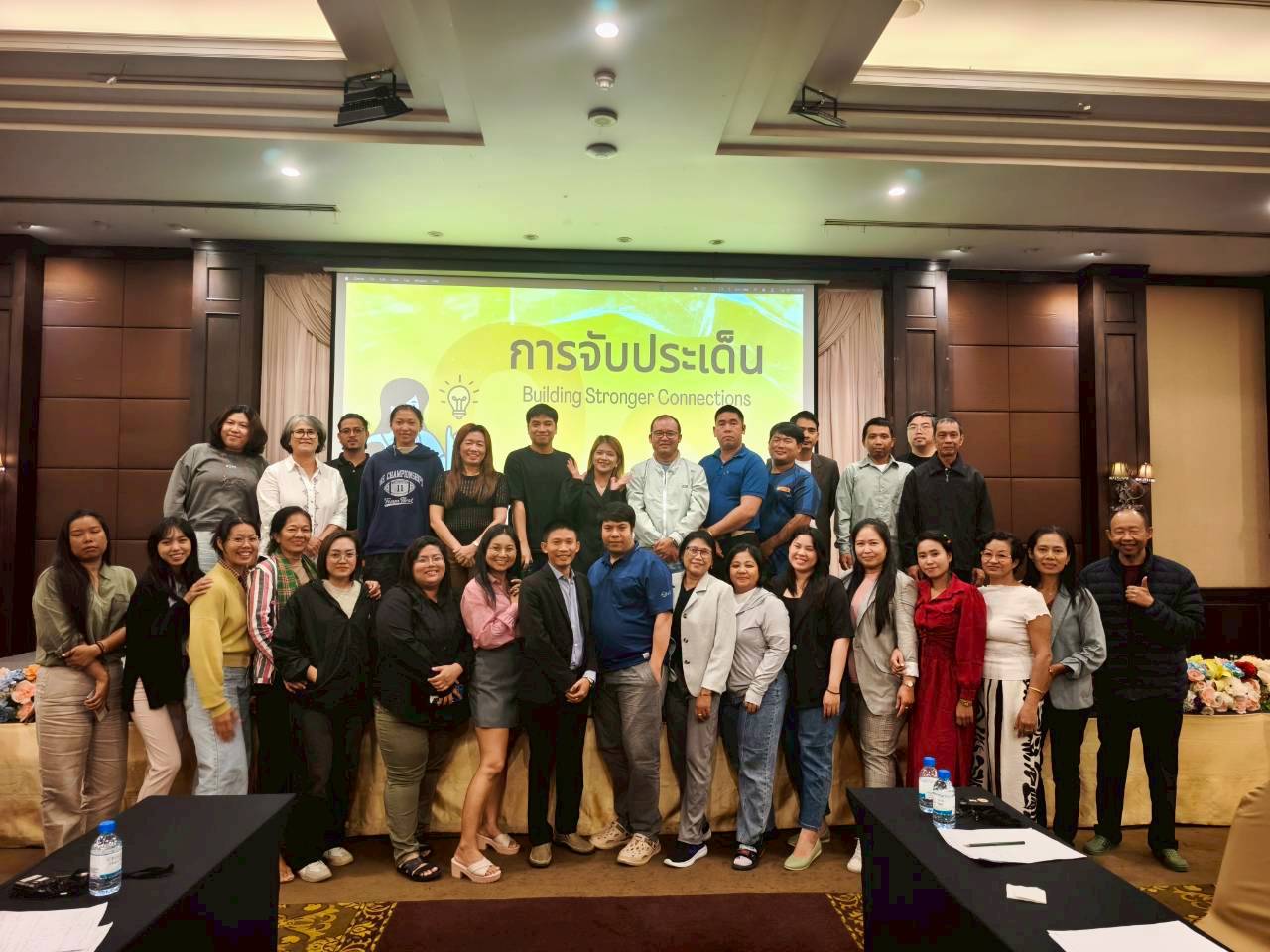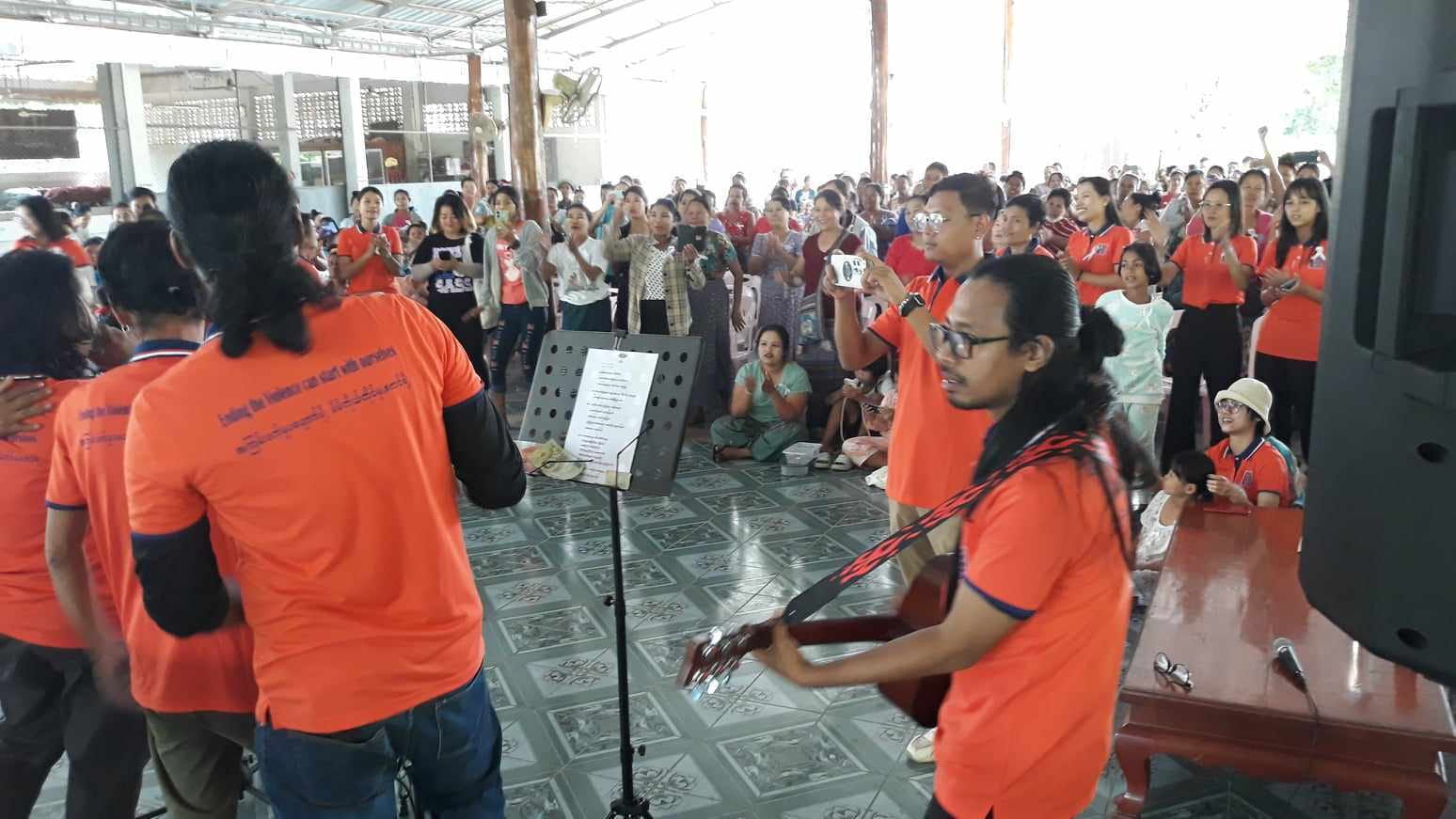27–28 September 2025
In today’s world overflowing with information that shapes our daily decisions, it is important
to know how to extract the “heart” or key ideas from the issue, or information. On 27–28
September 2025, MAP Foundation organized a workshop titled “Key Point Capturing and
Summarizing” for sub-grant leaders, migrant workers under the Porticus project at Chiang
Mai Grandview Hotel.
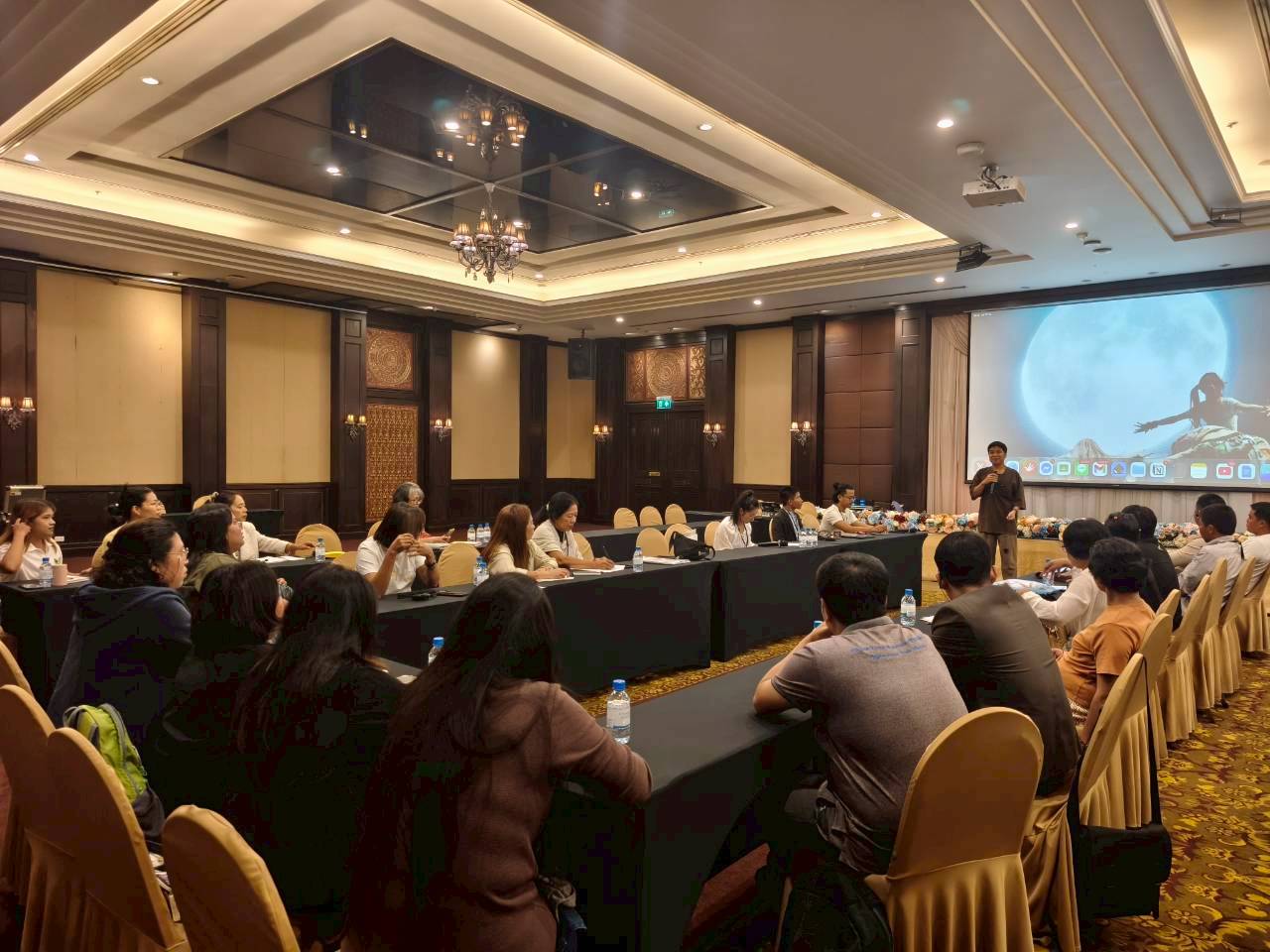
Key point capturing is not just about summarizing but it means extracting the most important
information or the “heart” of a story to create clarity, help teams stay focused on their goals,
and motivate them to move forward. This is both a skill and a process, requiring deep
listening and sharp analytical tools.
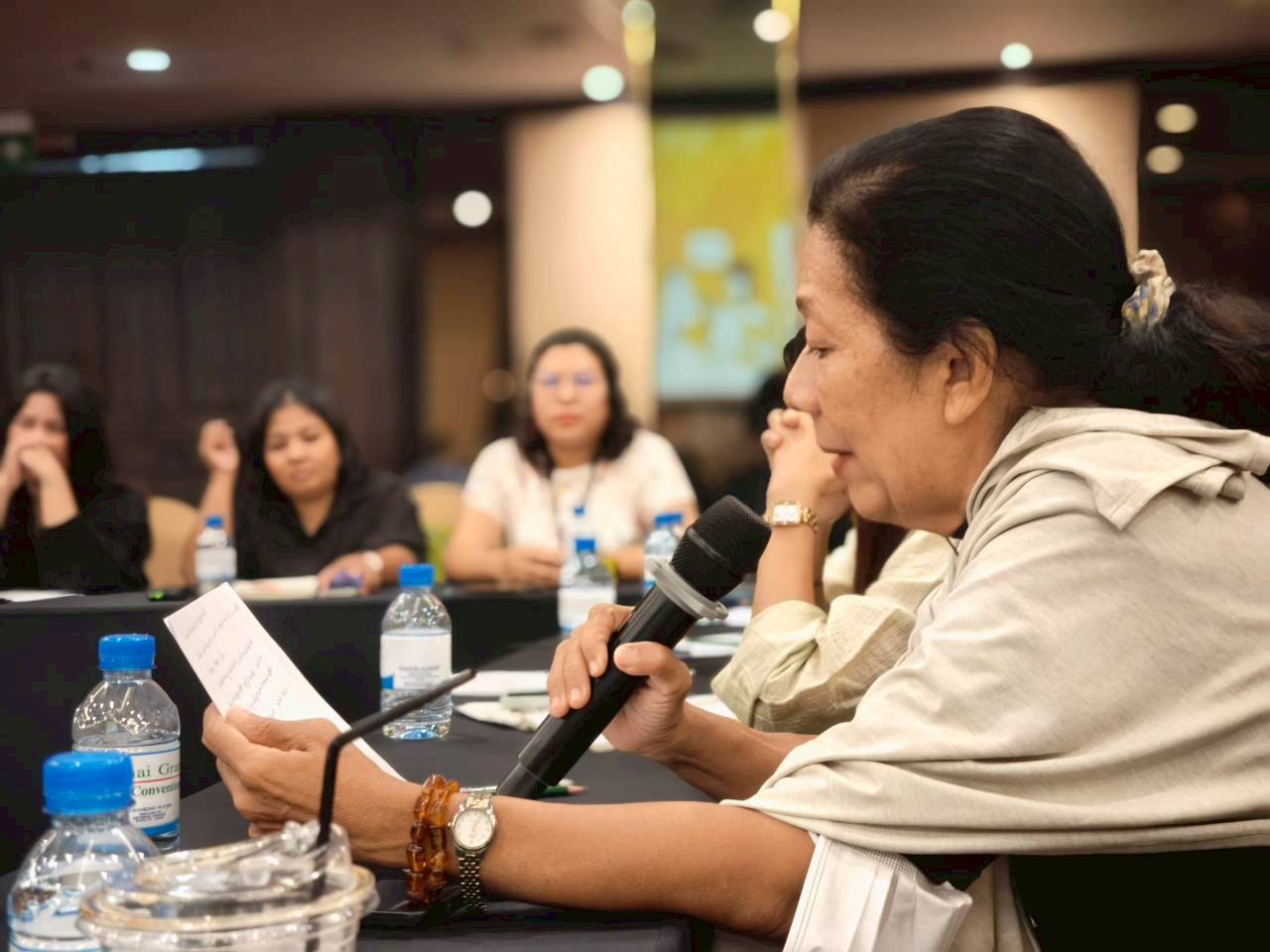
In the context of migrant workers in Thailand, particularly migrants from Myanmar, being
able to communicate and articulate real workforce issues is crucial. Effective key point
capturing allows information gathered from communities to be turned into alternative
solutions.
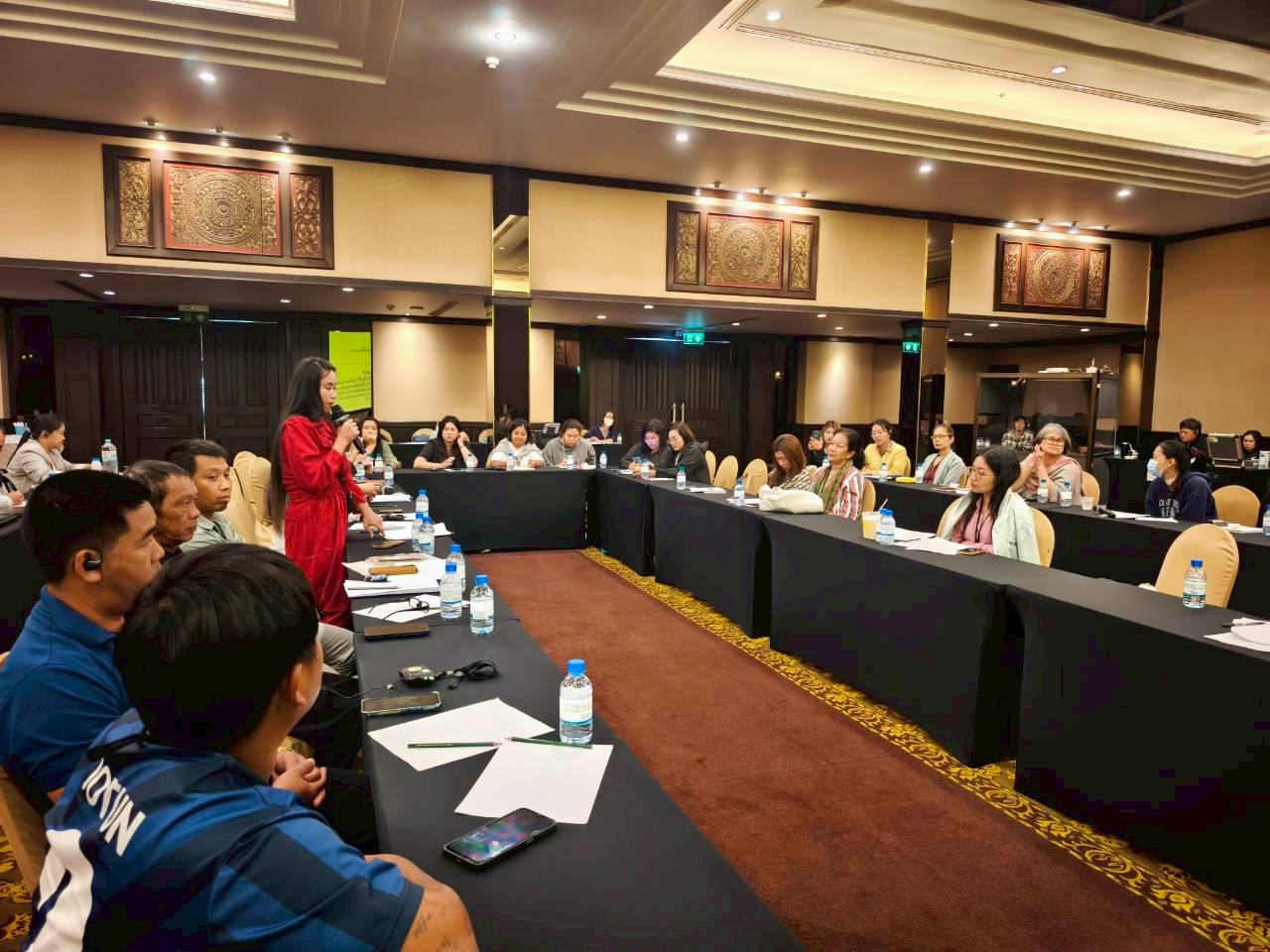
The training was led by Mr. Thiramon Buangam, Head of the Collective Wisdom Project at
Thai PBS, who shared valuable knowledge and techniques with migrant worker leaders from
different part of Thailand: agricultural groups and domestic workers from Chiang Mai, AWO
and GBVCG from Mae Sot, Hi Group from Bangkok, and factory worker groups from Samut
Prakan and Chonburi. The workshop aimed to strengthen participants’ skills in observing,
analyzing, and accurately identifying the problems facing migrant workers, while also
fostering the ability to explore alternative solutions.
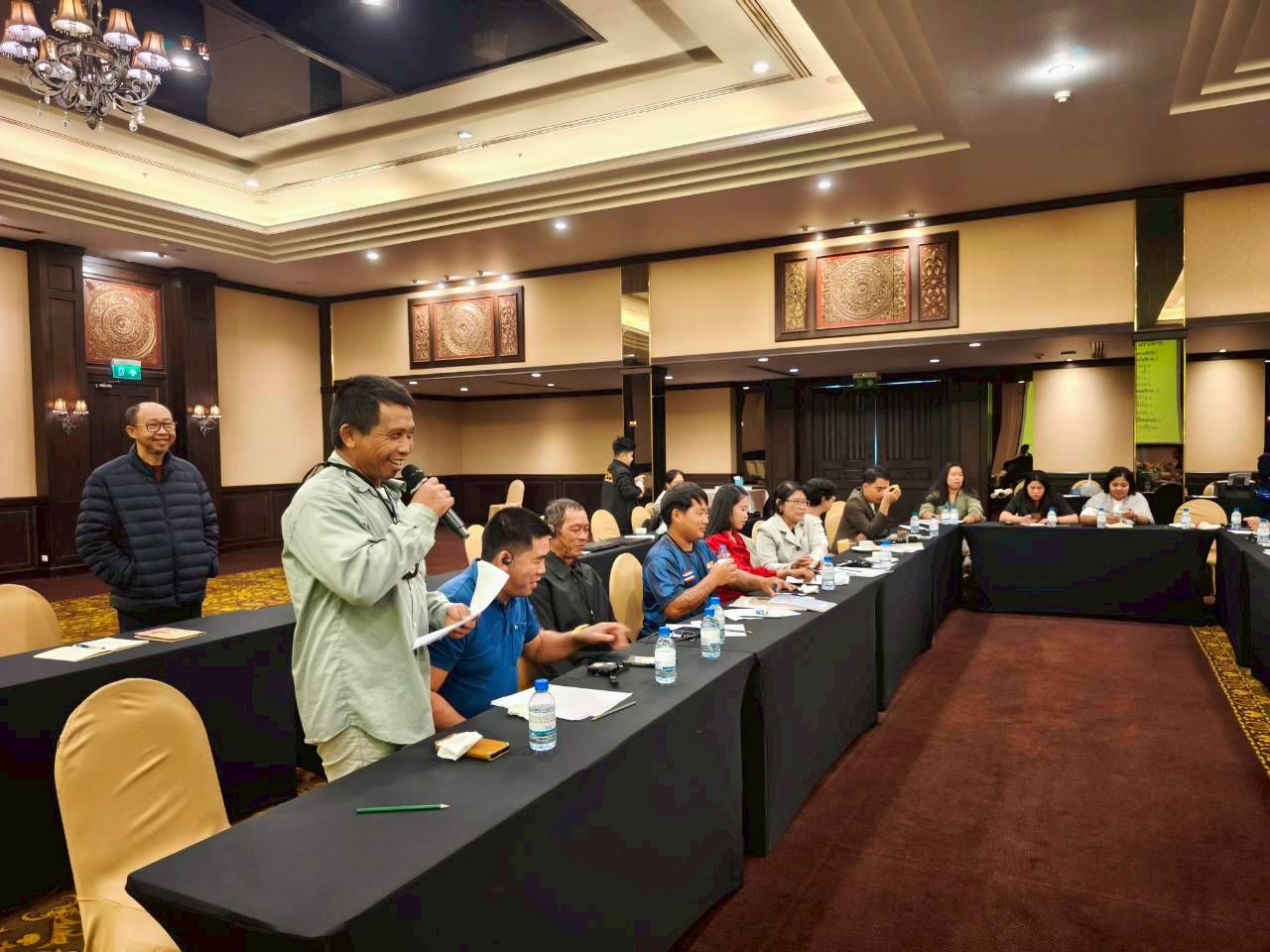
After the training, migrant worker leaders were able to identify and prioritize issues within
their labor communities, communicate them more effectively to relevant agencies, and act as
voices for their communities. They also built stronger collaboration with their networks to
advocate for migrant policies.
In conclusion, the “Capturing the Key Point” training not only enhanced participants’
analytical and communication skills but also empowered migrant worker leaders to become
agents of change in their communities. Equipped with these skills, they can now raise their
concerns more effectively, propose migrant-based solutions, and contribute to shaping labor
laws and migration policies that uphold justice and respect human rights.


